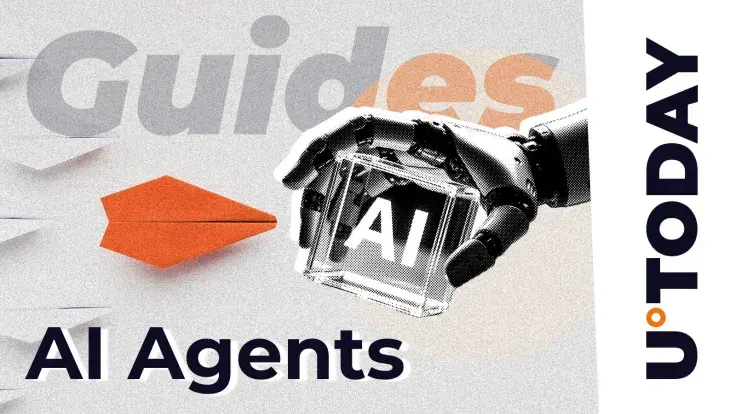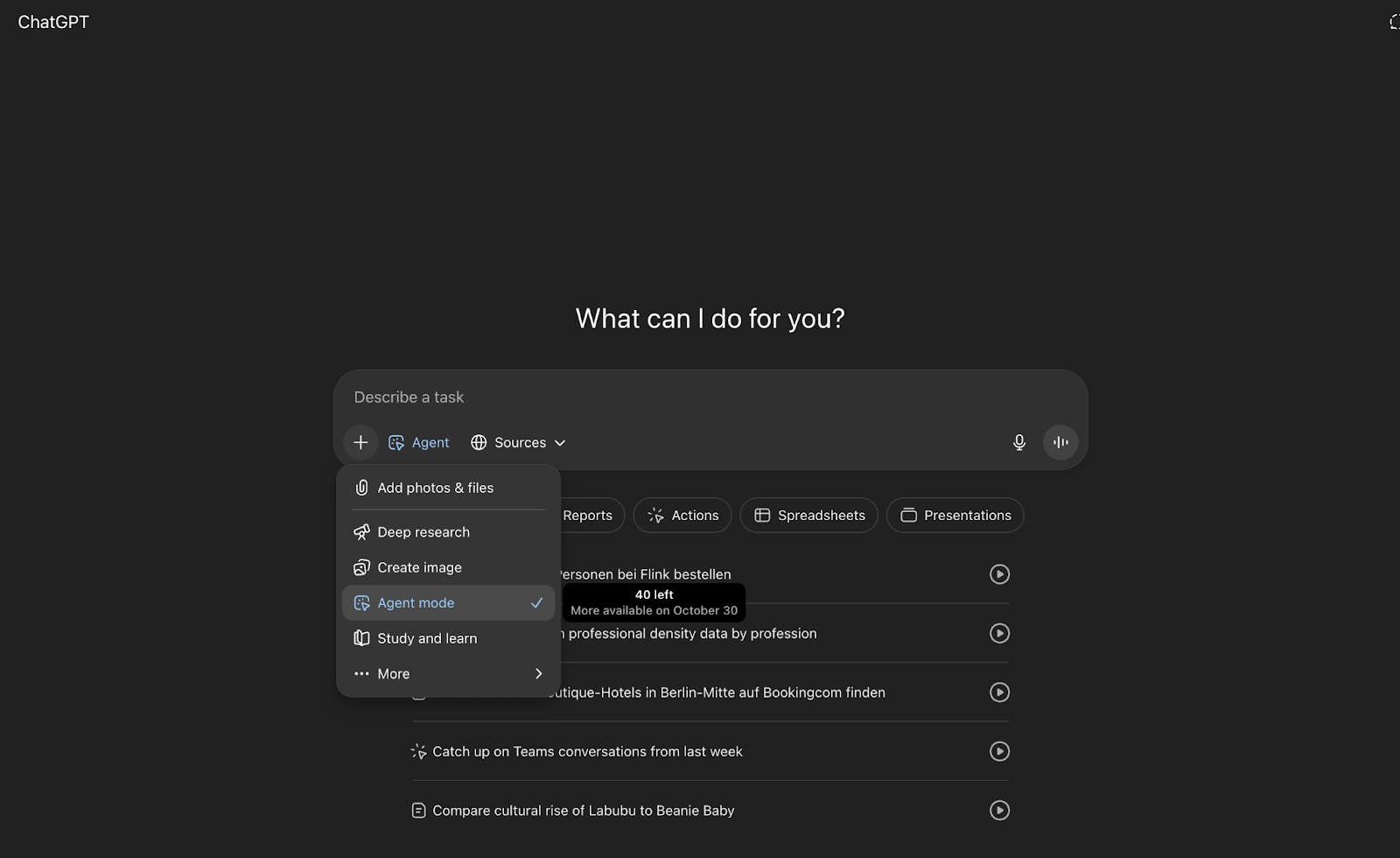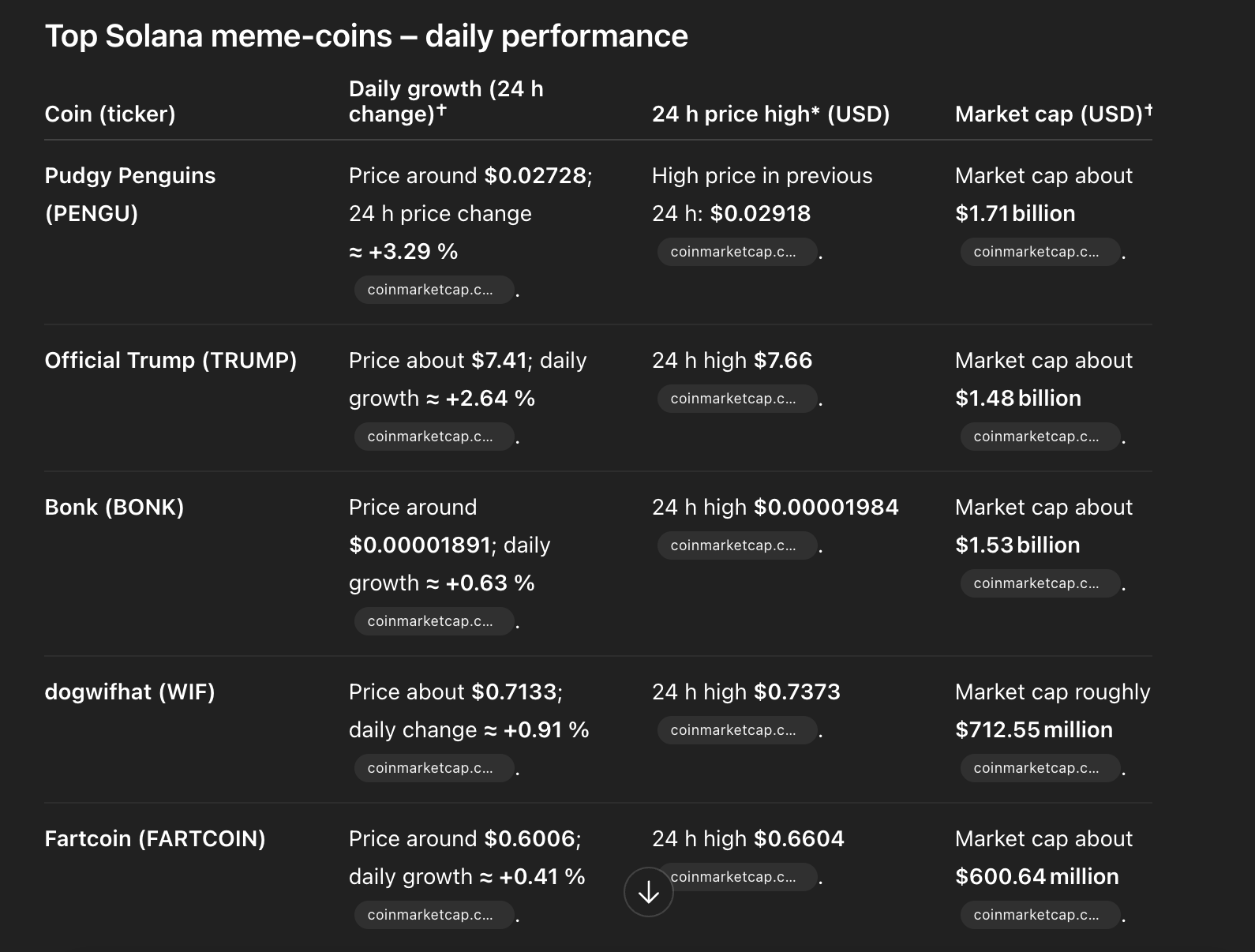
Disclaimer: The opinions expressed by our writers are their own and do not represent the views of U.Today. The financial and market information provided on U.Today is intended for informational purposes only. U.Today is not liable for any financial losses incurred while trading cryptocurrencies. Conduct your own research by contacting financial experts before making any investment decisions. We believe that all content is accurate as of the date of publication, but certain offers mentioned may no longer be available.
AI agents, i.e., isolated software programs that can execute tasks on behalf of users leveraging AI instruments, are gaining momentum in the crypto segment. AI agents easily fetch blockchain data, authorize transactions on behalf of wallet owners and even mint NFTs and stablecoins.
In this big guide, U.Today reviews the most common types of AI agents, showcases some AI agent crypto projects with notable traction and shares some tips for newcomers to this emergent sphere.
AI Agents in crypto and blockchain: Highlights
AI Agents are in the spotlight for the crypto community thanks to their clear UX, low barriers to entry and impressive performance.
- AI Agents are software programs that leverage artificial intelligence to automate workloads and solve sophisticated tasks.
- AI Agents in crypto are used for analytics, to perform on-chain actions on behalf of users and for automated trading on CEXes and DEXes.
- Unlike classic bots, AI agents can be programmed in human-readable language with no special coding skills.
- AI Agents in crypto fetch data from both on-chain and Web3 sources, creating complex automation systems for economic logics.
AIXBT, Griffin AI, Numerai, ElizaOS and Virtuals are among the most notable AI agent projects in the cryptocurrency segment.
Crypto AI Agents: List
Here is the list of cryptocurrency AI agent protocols that leverage artificial intelligence to perform on-chain actions.
- AIXBT
- Griffin A
- Numerai
- ElizaOS
- Virtuals
- Fetch.AI
- SpoonOS
- AURA
- Sentient AI
- 0G
- OriginTrail
- IExec
- Unibase
- Freysa
- Phala Network
- ChainGPT
- CookieDAO
- Siren AI
- Alethea AI
- Paal AI
The majority of these platforms also help users in building and monetizing their own AI agents for crypto operations.
AI Agents in Crypto: Projects Overview
The following AI agent protocols in crypto are designed to help users in making trading, swapping, staking experience automated and frictionless.
AIXBT
AIXBT is a one-stop AI-powered crypto market analytics system. In a newbie-friendly manner, it demonstrates the hottest trends in blockchain dominating the discussion right now.
With AIXBT, crypto owners can spot surging crypto prices or promising projects earlier than competitors and benefit from investing opportunities of various types.
Griffin AI
Griffin AI is an ecosystem for the development of AI agents intended to gather information, automate on-chain activity, conduct research and predict trends in the crypto space.
Largely, it helps developers launch their own AI agents, trading bots as well as voice-guided instruments for crypto trading, minting and staking.
Numerai
Numerai is a veteran AI/ML project for traders that applies machine learning to research stocks and crypto markets as well as to automate trading in Web2 and Web3.
Tech-savvy users are invited to build a model using the example Python and R scripts. The project is associated with its own investing fund for institutional and retail participation.
ElizaOS
ElizaOS is an AI agents framework designed to assist in developing instruments for various crypto-related tasks.
Written in TypeScript, the framework — previously known as AI16Z — enables no-code development of tools they can trade on-chain, manage social media accounts, create content, analyze data, or interact with any API, blockchain, website or repository.
Virtuals
Virtuals Protocol allows users to create AI agents for trading and track the performance of agents created by their peers.
Also, it allows no-code development of meme coins. Every product on Virtuals has transparent data for FDV, token performance, number of holders, creator contract and date and so on.
Fetch.AI
Launched in 2017, Fetch.AI is an ecosystem of ready-made LLMs tailored for on-chain activity automation and a playground for building and testing users' AI agents.
Fetch.AI also has its own collection of Model-Context Protocols, i.e., developments that connect LLMs and external data via ready-made API endpoints.
SpoonOS
Backed by "Chinese Ethereum" NEO, Spoon OS is promoted as the first-ever operating system for AI agents.
SpoonOS is a robust framework for seamless interaction between MCPs, LLMs and user-generated AI agents. SpoonOS ensures data privacy and security using ZKP, FHE and TEE, enabling secure and verifiable data processing across AI agents.
AURA
Developed by AdEx Network, AURA is a one-stop no-code ecosystem for creating isolated AI agents for Web3 tasks. The development pioneers the concept of DeFAI, i.e., native usage of AI instruments in DeFi protocols.
As per its team’s statements, AURA generates secure and high-impact DeFi strategy recommendations, lowering the entry barrier to emergent tech.
Sentient AI
Backed by Pantera Capital and Delphi Ventures, Sentient AI is a blockchain-based platform and ecosystem designed to foster a decentralized, Open AGI (Artificial General Intelligence) Economy.
Sentient aims to enable open-source AI developers to monetize and collaborate on AI models, ensuring they are open, monetizable and loyal (OML) through blockchain incentives.
0G
0G, which means "zero gravity," promotes itself as the first-ever AI-native Layer-1 blockchain. Its goal is creating a Modular DeAIOS (decentralized AI operating system).
In its mainnet, launched in September 2025, every element — from its execution layer, VM, service marketplaces to dApps and accounts — employs AI developments to ensure maximum compatibility with AI applications.
OriginTrail
OriginTrail positions itself as a collective neuro-symbolic AI that combines structured and connected information from symbolic AI (decentralized knowledge graph) with the creativity of neural AI technologies (large language models), building a robust decentralized AI infrastructure.
OriginTrail's solutions are designed to ensure fair participation, inclusivity and transparency in the segments of mass media, sports, supply chains and so on.
IExec
IExec acts as a flexible AI-powered privacy layer that can be added to make existing dApps more reliable, secure and confidential.
IExec's AI developments are designed to enhance governance modules, developer experience, data ownership, messaging and other data-sensitive use cases.
Unibase
Unibase positions itself as a high-performance decentralized AI memory layer designed to solve the challenges of long-term memory storage and cross-platform interoperability.
The tech architecture of Unibase is centered around AIP, a Web3-native agent interoperability protocol (MCP+GRPC-compatible) for identity, permissioning, data ownership and shared memory. AIP is accompanied by memory tooling and a data availability layer.
Freysa
Freysa AI is a project that focuses on digital twins, i.e., AI-powered avatars designed to mimic the behavior of people in personal and professional contexts.
Besides the opportunity to create, coordinate and use digital twins, Freysa offers Silo, a ChatGPT-like personal AI interface focused on privacy and the first step toward the creation of personalized Digital Twins.
Phala Network
Phala Network is a protocol that empowers AI agents with decentralized computational capacity. It represents a hardware-secured computer platform that delivers verifiable AI with enterprise-grade privacy.
The opportunity to deploy private LLMs into a confidential computation basis is the killer feature of Phala Network. It allows enterprises to employ AI with no need for privacy compromises.
ChainGPT
ChainGPT is an attempt to showcase all crypto-related AI developments within a single interface. From AI chatbots on crypto to an AI NFT generator and an automated trading bot, it offers solutions for dozens of income mechanics in crypto.
ChainGPT works on its own GPU and API marketplaces for third-party integrations.
CookieDAO
Cookie DAO is positioned as a modular data layer for the AI-driven reality. Technically, it is an aggregator of information about projects offering AI agents for Web3, crypto and blockchain tasks.
Cookie DAO has its own bots for trading, NFT generation, staking, swapping, analytics and other use cases at the intersection between AI and Web3.
Siren AI
Siren AI is an ecosystem of AI-powered assistants for the BNB Chain community. Its protocols are able to assist users in DeFi automation, Web3 protocol optimization, on-chain trading and so on.
It also works with smart contract development workload and meme coin segment browsing.
Alethea AI
Alethea AI pioneered the concept of AI Swarms. AI Swarms should be referred to as teams of AI agents collaborating with each other.
The launch of decentralized TV channels, solely governed by AI, is the first mainstream use case for Alethea AI's swarms.
Paal AI
Paal AI is a decentralized application on Ethereum (ETH) that offers AI-powered tools and services primarily for crypto users, allowing them to create custom AI assistants, generate content, automate trading and access market data.
The platform's native token PAAL is the backbone of its tokenomics that enables users to participate in the network, earn rewards and access premium features.
What are AI Agents?
AI agents (artificial intelligence agents) should be considered a class of programs that leverage AI principles to execute tasks on behalf of customers. To do so, they employ reasoning, planning and learning from their environment and interactions.
Unlike traditional chatbots, AI agents are capable of processing sophisticated workloads, working with various types of data and performing with the minimal intervention of customers.
Modern AI agents can also learn from previous experiences and can typically be created and customized in a no-code or low-code manner. Combined with newbie-friendly interfaces, this makes AI agents popular in various segments of the digital space.
AI agents in crypto: Use cases
In the blockchain and cryptocurrencies segment, AI agents became particularly popular due to their ability to work simultaneously with on-chain and off-chain data.
Voice agents
Voice AI agents are designed to allow cryptocurrency owners to authorize on-chain commands via voice instructions. For instance, cryptocurrency customers can just say "take 100 XRP as a collateral and mint 100 FXRP," "lock 2 ETH to borrow USDT," "swap half of my SOL balance to USDC" and so on.
These AI agents automatically recognize the voice command and initiate the on-chain operations with private keys.
Analytical tools
Analytical AI agents fetch the data from non-custodial on-chain platforms to support users with up-to-date information. Such AI agents index and broadcast the data about asset prices, liquidity volume in pools, open interest, orderbooks and so on.
Also, crypto analysis AI agents can index and summarize in a human-readable document information from Web2 sources like social media platforms and crypto media outlets, in order to identify the trending topics and audience sentiment shifts.
On-chain bots
On-chain trading bots work not unlike their previous-gen predecessors. They are capable of placing orders, withdrawing them, executing one when certain requirements are met and trading within the "grid" to buy low and sell high.
As such, on-chain trading bots are powerful instruments necessary to automate trading strategies for newcomers and professionals.
Other sorts of AI agents in crypto include NFT publishing bots, on-chain content generators, token deployers and many other classes of Web3 software.
AI Agents in crypto 101: Basic tips
Unfortunately, the popularity of AI agents in crypto has already led to a spike in scams associated with these services. Here's how to protect yourself while choosing and running AI agents on-chain:
- Security first: Never share your sensitive information, passwords or private keys with a platform claiming to be "AI agent creator."
- No AI bot is capable of being profitable all the time: Beware of protocols and services that guarantee profitable trading - in crypto there is always a risk of losing all of your investments.
- First understand, then run with it: Avoid using obscure platforms with no documentation or clear positioning, or those lacking active social media accounts or a proven track record.
With these basic measures, every trader should also keep in mind that the AI agents segment is in its infancy, so every investment here is super-risky.
Launching AI Agent with ChatGPT
Here's how you can build the simplest analytical AI agent only using ChatGPT, an OpenAI's chatbot, which is now powered by GPT 5 large language model.
1. Enabling agent mode
First off, you need to launch ChatGPT and activate "Agent Mode," which will enable it to assist you in creating AI agents.

"Agent Mode" is available in a dropdown that shows up when clicking on the Plus icon.
2. Prompting tasks
In the search bar, input the task for your AI agent. As a demonstration, let's analyze here the performance of the five biggest meme coins on Solana (SOL) blockchain in the past 24 hours.

By clicking the "Go" button, we launch the AI agent.
3. Executing actions
ChatGPT starts executing the task. In a couple of seconds, it summarizes the results of the analysis in the form of a table and summary with references to sources.

On some models, due to the "Deep Thinking" option being active, execution might take more than one minute.
4. Export results (optional)
If you are going to use the results of the operations of AI agents somewhere else, you can export them to a .csv table or markdown file.

In seconds, ChatGPT will create a file to download.
Wrapping up
AI Agents are isolated software programs that can execute various types of tasks on behalf of their users. In crypto, they automate on-chain activity, track statistics or even trade on CEXes and DEXes.
Such performance is accomplished due to the capability of AI agents for self-learning, deep customization and no-code programming.

 Dan Burgin
Dan Burgin Vladislav Sopov
Vladislav Sopov